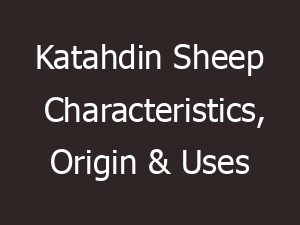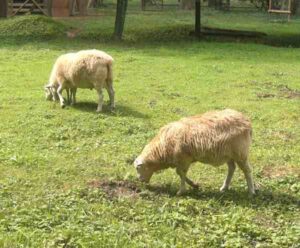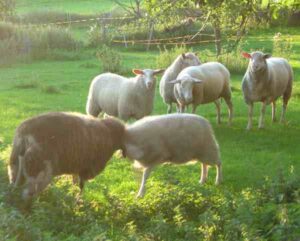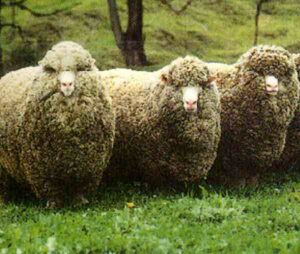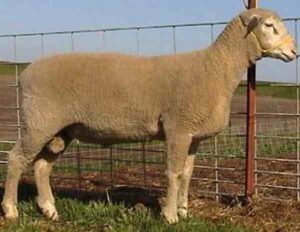The Valais Blacknose sheep is a breed of domestic sheep from Switzerland. It was actually originated in the Valais region of Switzerland.
The breed is also known by some other names such as Blacknosed Swiss, Visp, Visperschaf, Walliser Schwarznaseschaf and Wallis Blacknose.
It is a coarsewooled breed and raised mainly for meat. Although it is a dual-purpose breed which is raised for both meat and wool. Read some more information about this beautiful breed of domestic sheep below.
Valais Blacknose Sheep Characteristics
Valais Blacknose sheep is a large sized breed. It is mainly white in color, and as the name suggests the breed has black nose and face. It’s a horned breed and both rams and ewes have horns.

Average body height of the Valais Blacknose sheep rams is between 75 and 83 cm, and between 72 and 78 cm for the ewes.
Average mature body weight of the mature rams is between 80 and 130 kg. And average body weight of the ewes vary from 70 to 90 kg. Photo and info from Wikipedia.
Uses
This sheep is a dual purpose breed. It is raised for both meat and wool.
Special Notes
The Valais Blacknose sheep are very hardy and strong animals. They are mainly a dual purpose animal, good for both meat and wool. But today the breed is raised mainly for meat production purpose. It is a very beautiful breed of domestic sheep and popular in it’s native area.
However, review full breed profile of this sheep breed in the following chart.
| Breed Name | Valais Blacknose |
| Other Name | Known by some other names such as Blacknosed Swiss, Visp, Visperschaf, Walliser Schwarznaseschaf and Wallis Blacknose |
| Breed Purpose | Meat, wool |
| Special Notes | Very hardy and strong animals, good for both meat and wool, but today raised mainly for meat, very popular in it’s native area |
| Breed Size | Large |
| Weight | Rams weight between 80 and 130 kg, and body weight of the ewes vary from 70 to 90 kg |
| Horns | Yes, both rams and ewes have horns |
| Climate Tolerance | Native climates |
| Color | White with black nose and face |
| Rarity | Common |
| Country/Place of Origin | Switzerland |

